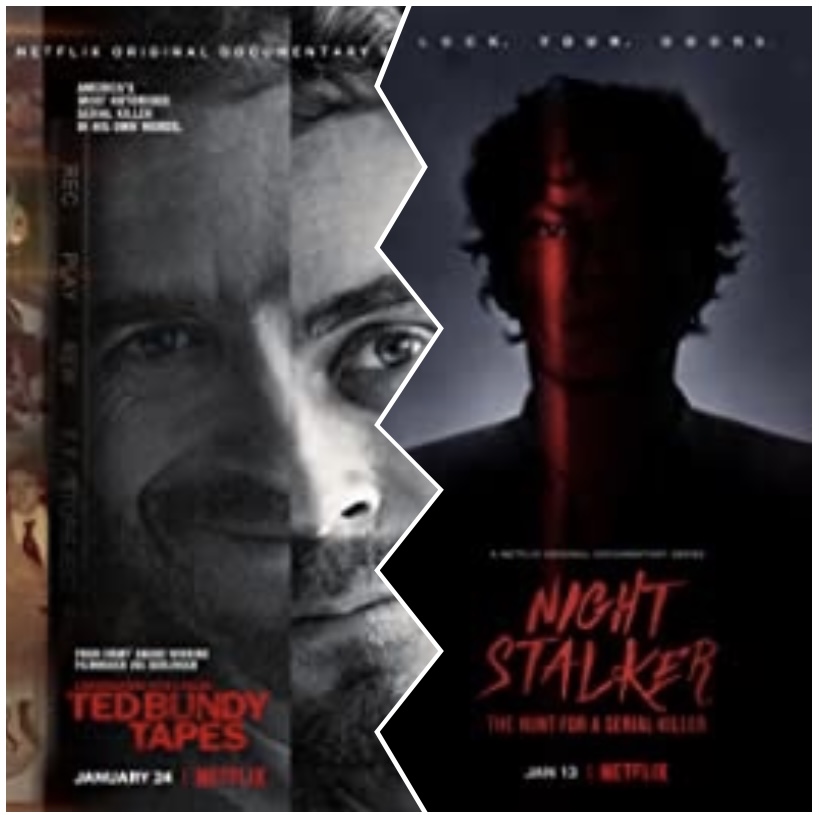Glorification vs Information: A Review on Netflix’s Killer Documentaries
March 23, 2021
No one is a stranger to censorship in television. Whether it’s a restriction implemented by a parent or the warning label before the start of a movie, show or video game, these restrictions are there for a reason, and whether or not we ignore them is at one’s discretion. Despite the warnings, viewers often don’t accurately predict the severity of the content they are about to watch.
On Jan. 13, 2021, Netflix came out with a new documentary about notorious serial killer Richard Ramirez, better known as ‘The Night Stalker’. Upon its release, the documentary quickly became part of the top ten shows being watched on Netflix.
Before the film’s release, director Tiller Russell stated that he didn’t want to glamorize Ramirez, and that he wanted to give honor to the people who suffered at the hands of Ramirez’s crimes.
Telling the story of a serial killer can result in varying angles, and so can peoples’ opinions. When the infamous Ted Bundy Tapes came out in 2019, opinions on the stories presentation varied. Many viewers claimed that the tapes contained hours of mindless talking from Bundy and allowed for the reliving of his unspeakable crimes.
Other viewers criticized Netflix for giving Bundy a platform with the documentary, and were uneasy with the fact that Bundy, a clear narcissist when alive, would have basked in the attention that the series was getting.
Furthermore, many people were uncomfortable with the release of this series because of its potential to glamorize serial killers.
Documentaries and movies that give a watered-down ‘tv friendly’ version of horrific crimes can make anyone uncomfortable, and it can be upsetting seeing attention being given to such vicious people.
The release of a movie also centered on Bundy did not ease peoples’ weariness regarding the subject.
With both “The Ted Bundy Tapes” and “The Night Stalker” coming out, the dispute over whether such films portray bad people in a good light was at the forefront of peoples’ minds.
Viewers who enjoyed both of the documentaries disagreed with the idea that there was anything wrong in these series, and that the timeline of events was executed well and gave an accurate look into the horrors that occurred.
There is a fine line between genuine curiosity and respecting one’s own boundaries. Watching these films can push at someones limits for what they like to watch and what they can tolerate. The cost of watching these documentaries can be heavy for some viewers, and can drive them away from taking interest in similar topics in the future.
Documenting sensitive topics in the film medium can be extremely tricky.
It’s up to the director to make sure they carefully walk that line of being aware of how sensitive these topics can affect viewers, and how to balance mature themes.
Could these documentaries and movies be a gateway into something much darker than we can handle, or is it just enough to curb persistent curiosity?







